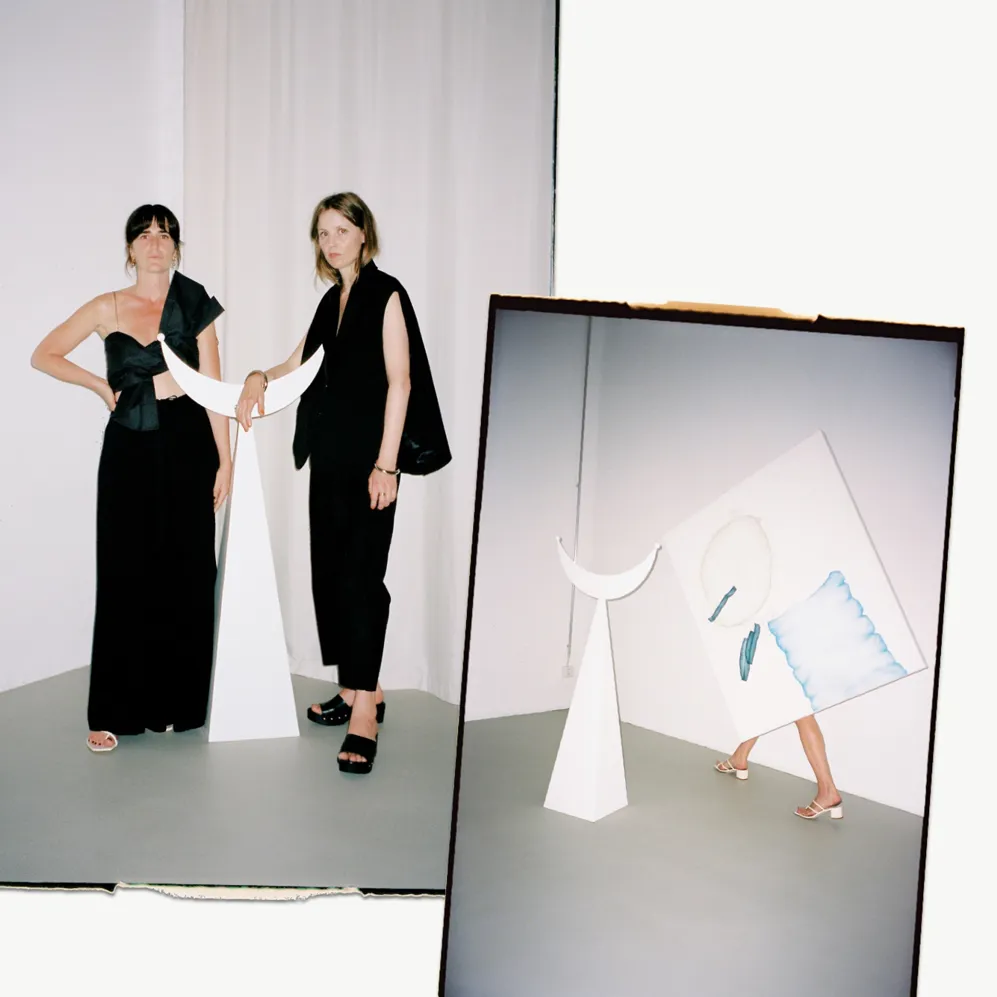
Words Vidula KotianImages Anouk Nitsche, Celine Paradis, and Cecilia RenardDate 07 September 2022
Smart, connected, empathetic: María Baños and Ida Johansson of Muses of Now were brimming with energy when we caught up with them—a vigor that they bring to the creative movement they founded in Barcelona in 2017, which now connects more than 10,000 women around the world. These champions of the creative female voice have a knack for bringing together artists from multidisciplinary fields for truly phenomenal (and instantly sold-out) gatherings and workshops. They’ve collaborated with key creatives such as Say Hi To, Ernesto Artillo, and Velma Rosai-Makhandia in cities like Berlin, Paris, and soon NYC.
Baños and Johansson describe Muses of Now best: “An art movement born in the intersection of creativity and culture among different disciplines as a tool to connect and amplify female voices who are changing the now.” We had a lovely chat with these ladies about their humble beginnings in Baños’ living room, forging into men-only spaces, and how despite their leaps-and-bounds progress in the digital space, the physical is where the real magic happens.
Ida Johansson: Yes. I’m still based in Barcelona. It’s kind of fun because a lot of people think that I’m based in Berlin now, since we did a couple of events there such as Geometry of Light for Muses of Now.
María Baños: I like to change locations. I’m going to move to New York next year. Right now, I’m in between Barcelona, Mallorca, and New York.

Ceremony of Neptune, Barcelona An astrology-led event by Argentinian artist, performer and astrologer Madeleine Botet de Lacaze

Geometry of Light The second event in Berlin
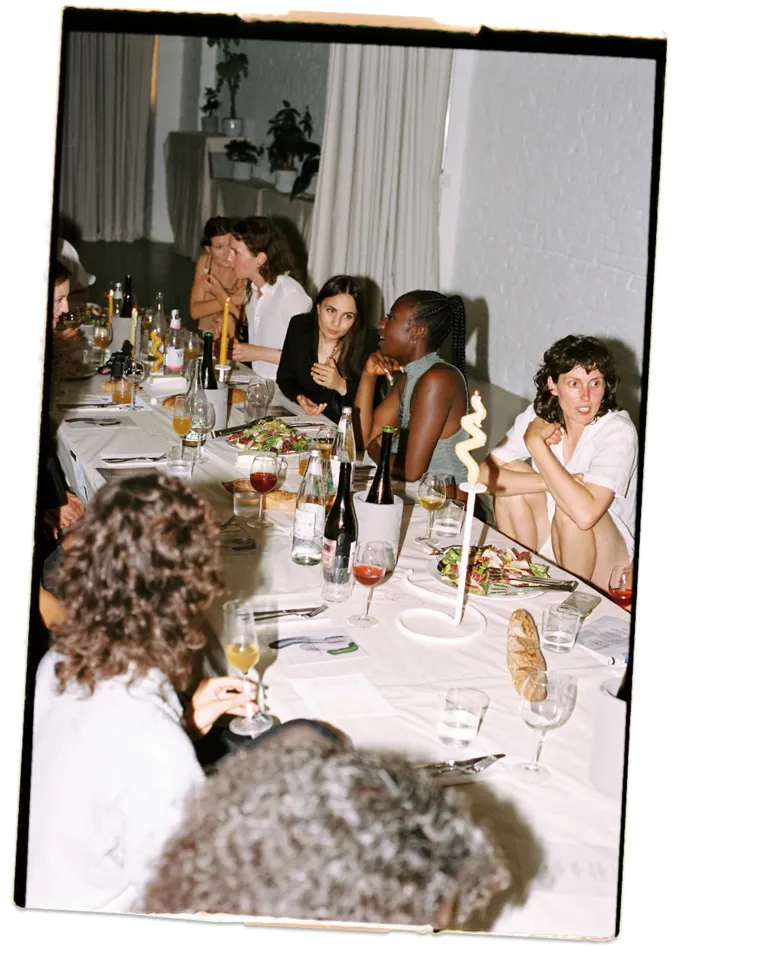
MB: I’ve always had this strong connection with the city. I love big cities and these places where there is a huge mix of cultures and different people. I need that. I’m a very curious person, so I want to learn new things and grow. I think you can see a cultural mix in many capitals like in London and Berlin but the way it’s blended in New York is amazing.
MB: We met 10 years ago in Barcelona. We both come from the fashion industry but from different backgrounds. I had just moved back from Berlin where I lived for three years. I started working for this e-commerce platform and that’s where we met. We did many projects together after that and developed a strong friendship. Later on, we ended up doing Muses of Now.
IJ: It was kind of in the air. Five years ago, the world was a little different because it was before #MeToo and Black Lives Matter. We felt like there was a women’s movement bubbling, but we wanted to do something different that represented us. We had an idea for what we already called “the movement” by then to connect women from different creative industries.
We wanted to create a platform where we could all meet in a horizontal or circular way—get together in a leisurely, holistic manner and share ideas and friendships, but also create projects together without it feeling like a networking event. For us, it was more a human than a women’s movement. We saw that if we wanted to make a change, we would have to be open and everyone would have to be included.
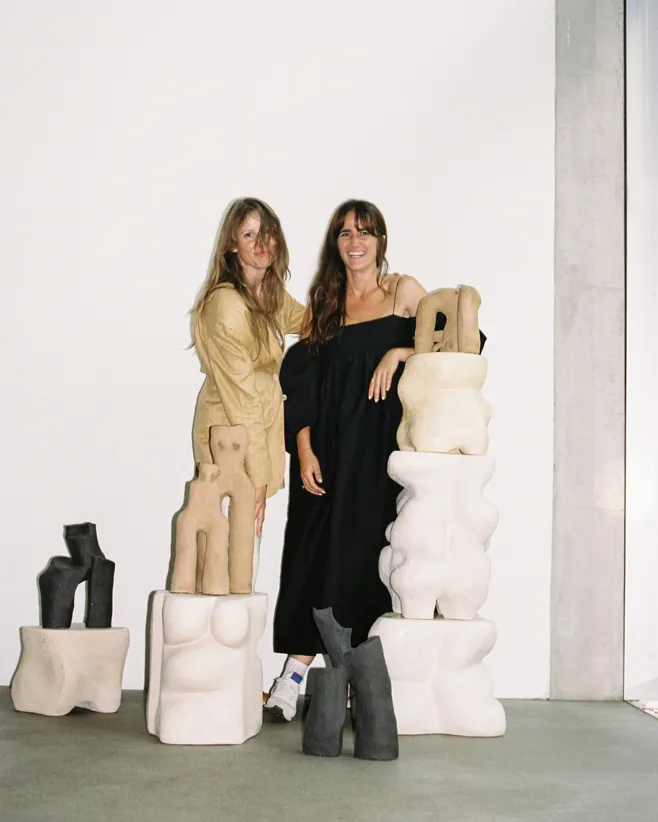
Ida Johansson
MB: The reason why we started NFTs is connected to everything we do at Muses of Now, in that we are this platform that connects women with art—whether it is a physical platform, distribution, an event, or getting involved in NFTs. We realized that it was all men jumping into this new future technology and understanding all these tools, and woman were being left behind. Only 0.02 percent of women are creating NFTs and understand how it works. We both don’t come from the tech world and decided to do some research. We wanted to at least have this tool to help the artists from our network to be a part of it.
We had great feedback from the press, artists, and different players in that universe. We’ve found new ways to push it and grow in this direction. We’re happy that we can become a platform for new technologies, new ideas, and new mediums for artists.
IJ: When we see something, we want to act on it. That’s what how we’ve learned and expanded. Like María said, over 98 percent are male creators in the NFT world and obviously that also reflects what you see when you’re looking. One of the challenges has been that we really wanted to to spread the voices of women and create a more equal narrative with the selection in our collection. Maybe the buyers are not really there yet. We have some ideas about next steps, but right now, we still see it as something to grow.
MB: That’s why we created Muses of Now. When we see the need for change, we’re thinking about how to make it happen. Some people fight reality whereas we are fighting forward. We’re always thinking of the next thing. How can we move forward and find the new?
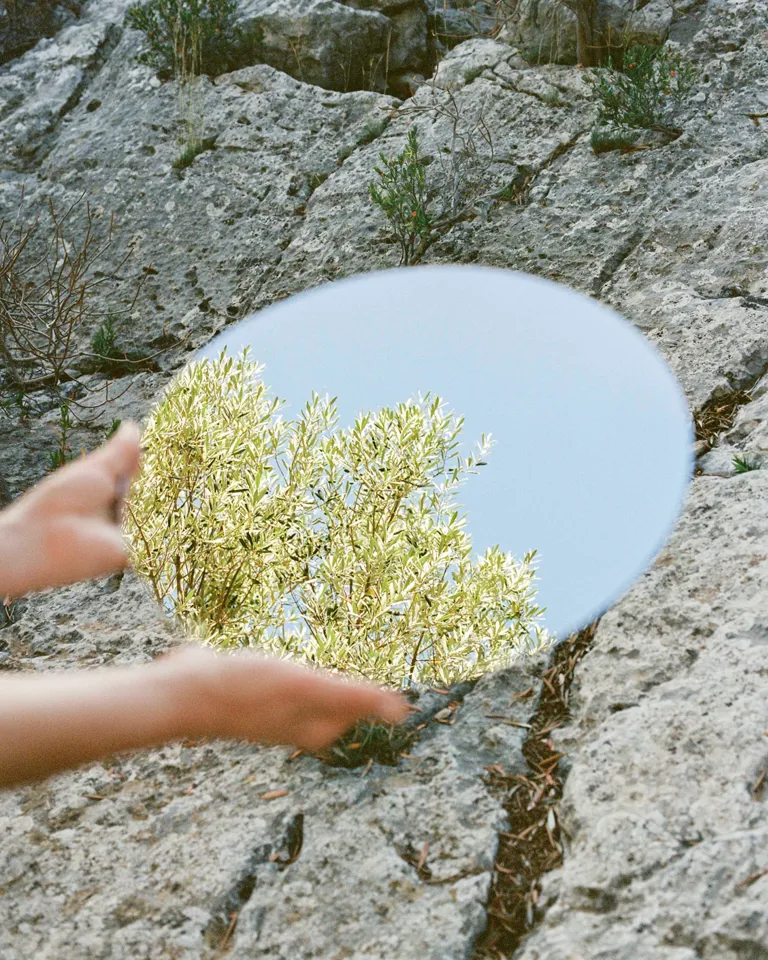
Reflections of Nature NFT by Cecilia Renard
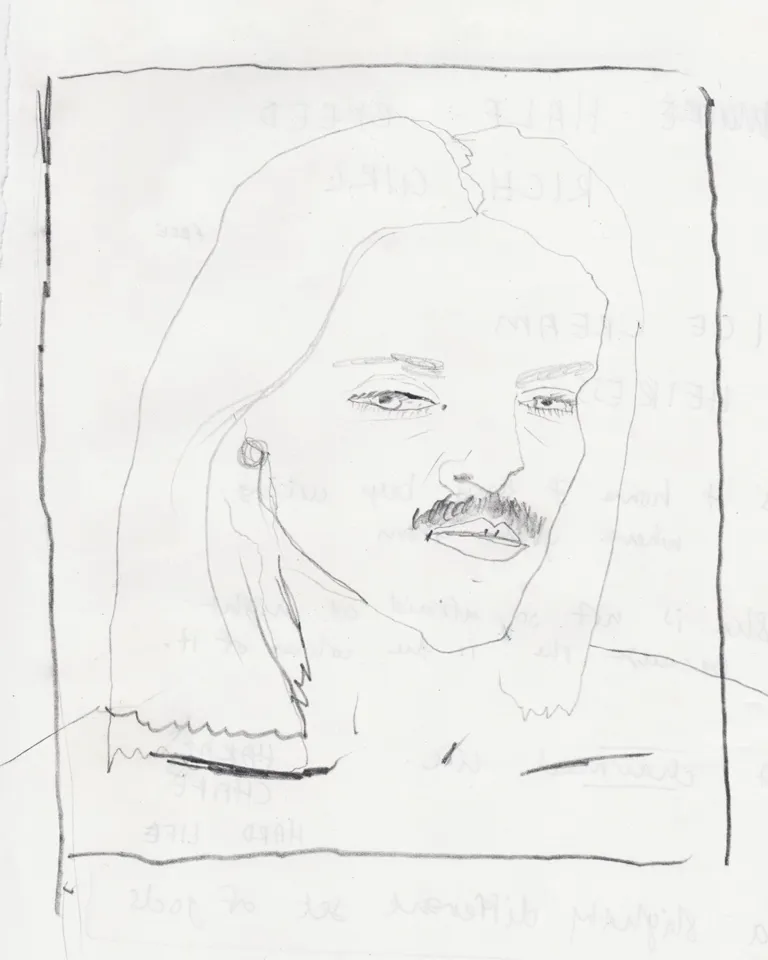
Mistress of Disguise NFT by Nabeeha Mohamed
IJ: Let’s say, we are the ones that initiate this change and then find the players for each activation. Of course, we choose the players that we think fit in and share our values. It’s also a matter of time. We’re always acting on the now with people from the now. In one way, time is a spiral so you cannot really say.
MB: I think we’re really connected with these women so sometimes it also comes from them, not in terms of potential ideas but more that we observe them a lot. Every time we do something, we observe the impact. Whether we do something spiritual, artistic, or even with the format that we use, we see what they need and love, or how they connected. This has given us feedback and then we move from there.
IJ: Instagram is our biggest platform and the biggest right now for many creatives. We also have our own networks and word of mouth is super important. We would not be anything if it wasn’t for the physical encounters. That’s where the real magic happens.
IJ: Yes, we do events and workshops.
MB: And traveling as well. I find a lot of things when I travel. When we go to art galleries, we always share content with each other. There is a lot still dependent on us but more and more people are finding out about us through an event or through Instagram where artists or their friends reach out to us. It’s becoming a proper word of mouth movement.
IJ: But we are continuously looking for new artists. We have been looking now for five years and you start getting some intuition. You read an article, which seems interesting and you always keep your eyes open.
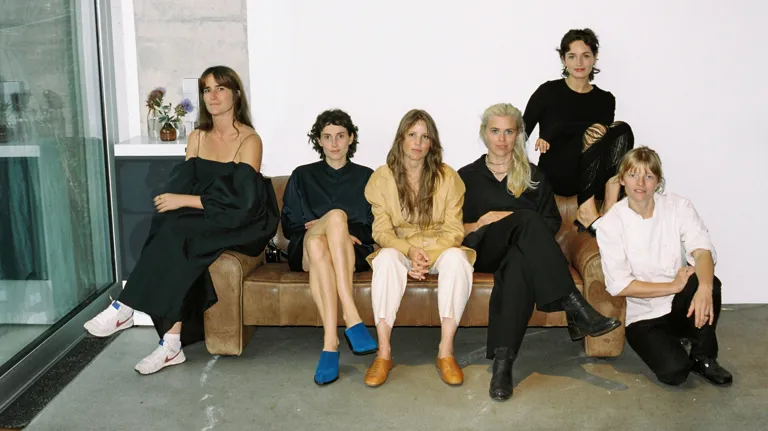
The Power of Duos The event took place at Baldon Berlin
María Baños
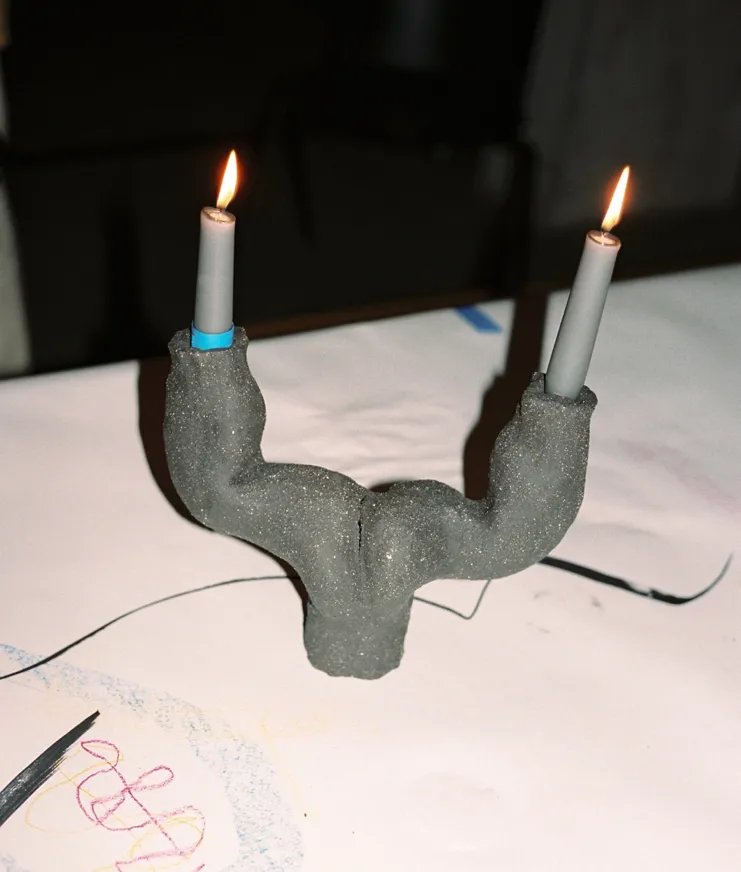
The Power of Duos Highlighted works by Yasmin Bawa and Margaret Flatley
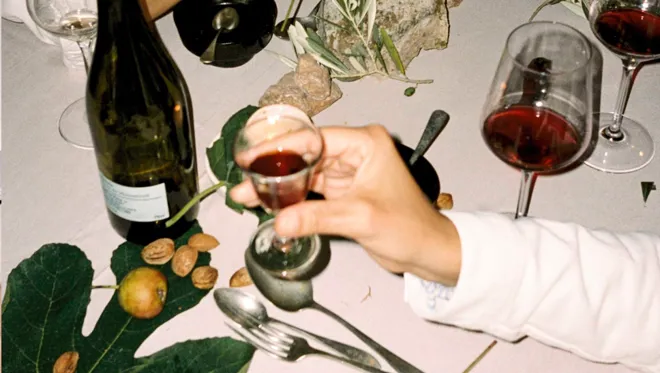
Circle of Tramuntana, Mallorca The first-ever weekend escape
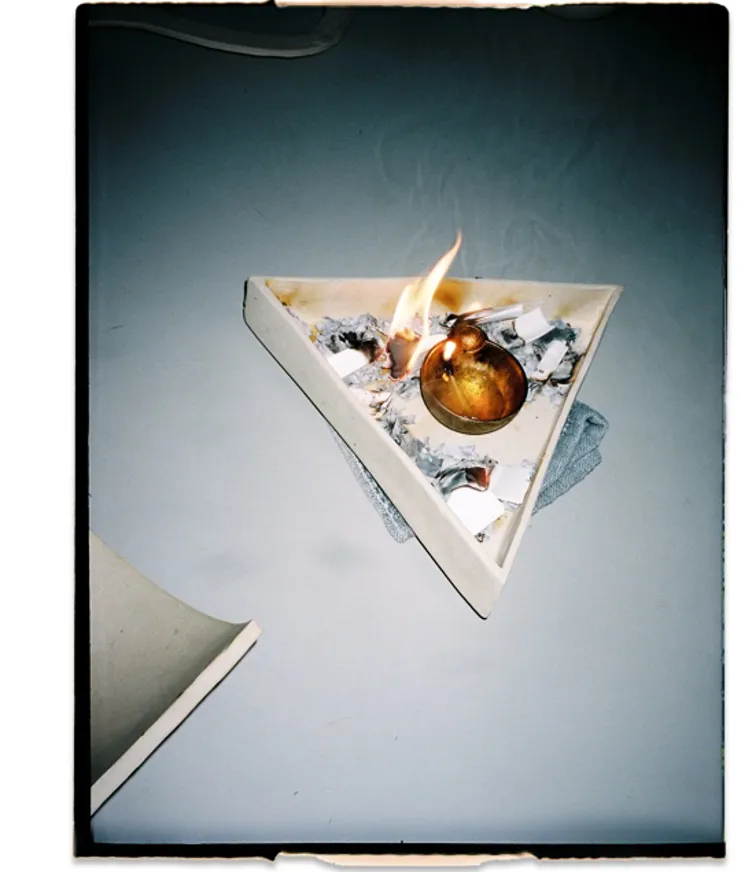
Geometry of Light, Berlin A celebration of light and creation
MB: Wow, it’s amazing. For Ida and I, the magic of Muses of Now is exactly at that moment. We find these players from different disciplines of gastronomy, location, artists, and music, and we bring them together. Even if they’ve never met before, they are connected somehow because we see the connection that they would create. Usually we present a concept with a direction and everyone has a role to play in it. It’s incredible how it always keeps on surprising me. How people are open to collaborate, to create, to challenge themselves with a new concept or way of working, and the final result is super unique.
IJ: It has been an evolution. We learn so much with every edition. Also doing an event in your own city is different than doing it somewhere else. We create the concept and find a place accordingly. We want whoever we choose to share our values. We always look for someone with a positive impact or when we see her work, it has to have a positive vibration. As María said before, we aren’t looking to fight the old but to create the new. We try to find conscious people caring for nature or ingredients when they’re chefs, for example.
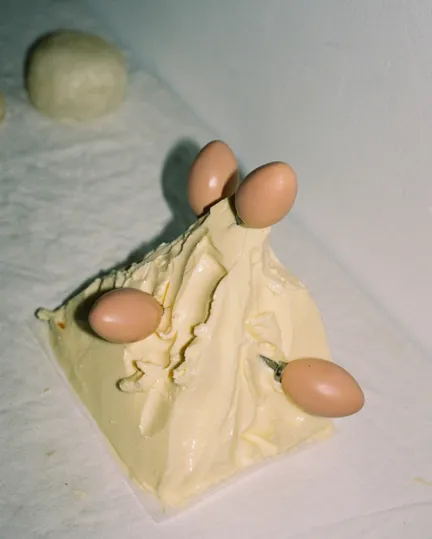
Tarot Table, Barcelona In collaboration with Food Rituals
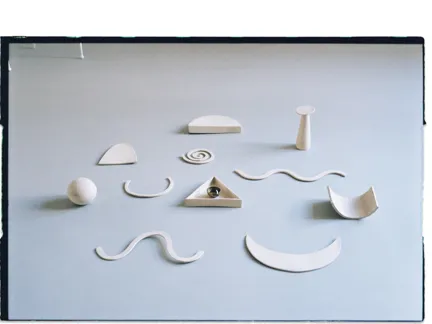
Berlin-based artist Nazara Lázaro Works displayed at Geometry of Light
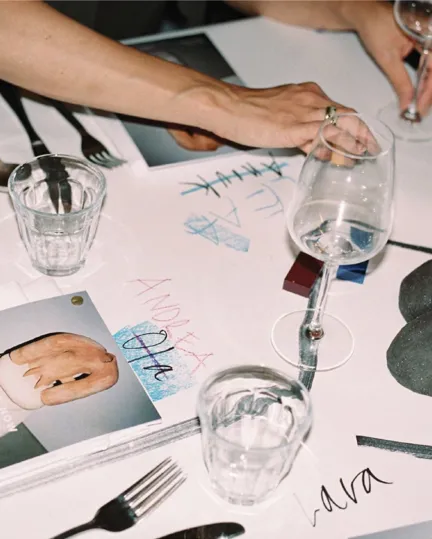
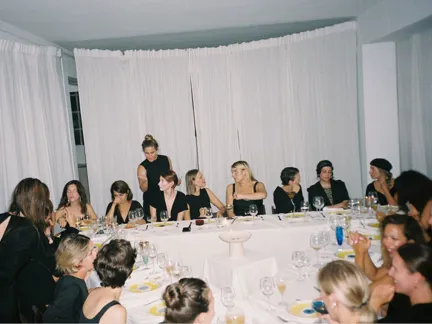
Tarot Table An intimate evening with 22 women
MB: I’m going to choose two. The first one we ever did because it was in my living room and we cooked together. We invited women that we knew from the creative scene in Barcelona. It was so much from our hearts and so personal and private.
Also the last one we did in Barcelona—Ceremony of Neptune—because I think the level of multidisciplinarity went beyond what we’ve done before. We chose art and gastronomy but also spirituality. We had Madeleine Botet de Lacaze who is an incredible artist and astrologer. She put a layer of astrology in everything we did that night. I think it helped us understand that we want to bring people on a journey and that when they come to our events they can laugh, cry, and go in and out—everything in one night.
IJ: The first one was 20. Sometimes we’ve had up to 35. It depends a little on the place. We have done art exhibitions, open-doors events with hundreds of people as well but most of our kind of classical dinners are intimate.
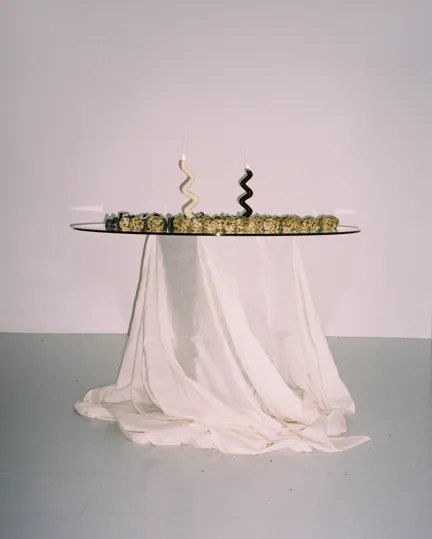
Ceremony of Neptune An experimental and sensorial four-hour workshop

A cosmic food experience By Milla
IJ: I think a combination because we have gotten where we are today thanks to our presence on social media. We invite artists to talk about other women who inspire them. It's an initiative called Muses of Now Invites. Once in a while, we share an artist for a week in our stories. It is a really nice way for us to get to know people that we didn't know before, though sometimes we know them already. The artists also get in contact with each other through our platform. Sometimes random people get connected because someone likes the art or music. We just sow this seed and then people grow it from there. So to be in contact with all of these women is one thing and and to spread their voices is super important for us.
And then we would say maybe the treasure is the events. There are so many things that are happening without us finding out because we don’t have an app. We are just on another platform where things happen because of what we started. We also know that there are many people who go to our platform to check out who’s there and then maybe find someone for a job or collaboration. So we know there’s a lot of parallel stories going on.
MB: We’re going to have a new period next year. We want to do what do we do now but shape it in a different, stronger way...even more related to art and how to keep this moment of life going. We’re having conversations with brands and companies to sponsor or be a part of the movement. We’re growing and putting in a lot of time. It’s an incredible movement where we see that impact of what we do, and we need to find a way of surviving and making it happen. So that’s our goal for next year...to find these brands and the incredible teams behind them who share our values.

Physical and sensorial exercises At Ceremony of Neptune
María Baños
IJ: We feel like we have done the hard work of navigating the lockdown and finding our way back. We have learned so much about our social media impact and grown that a lot during these last years. Our next goal is to to root it more and make it more sustainable economically, but also we’re working on city chapters to increase our scope. Now, we have a strong presence in Barcelona and Berlin, and we’re working on Paris. We want to have these capital cities, and then we might do some pop-up events as we did in Mallorca. So to be rooted and to have a stronger, more lasting impact.
IJ: People tell us how they love being at our events and connecting with these people but that they need help to to connect with these people more frequently. It means that maybe in one event, people do connect afterwards, and we can see that they are following each other on Instagram. It makes me so happy when I see these people come together and become such good friends.
There are other events where people have a strong connection but they don’t take that next step. In this case, we want to make it is easier for them to connect again and become friends or collaborators. So sometimes we just plant the seeds and then people grow it by themselves and sometimes we need to root it even more.
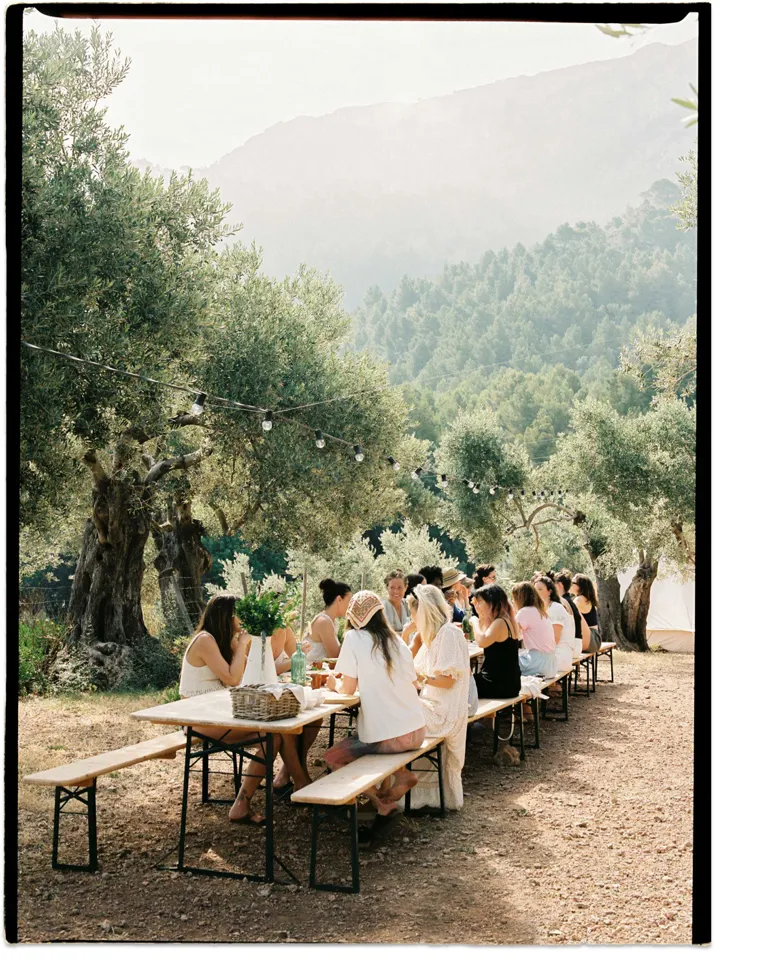
Weekend escape in Mallorca Accompanied by Deborah Piña Zitrone's food
